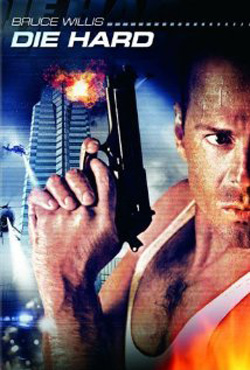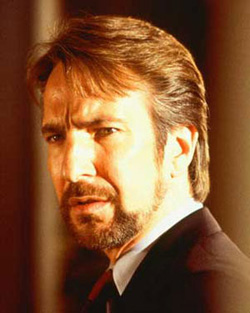
Marketing. If you’re a female author and your thriller includes a consummated relationship and happily-ever-after-for-now, you’re labeled “romantic suspense.”
Sex. If you’re a female thriller writer who includes one or more explicit sex scenes between two consenting adults, and they’re still together at the end of the book, you’re often labeled “romantic suspense.”
But really, those are the easy answers; there’s more to it than that!
To me “romantic suspense” is the more traditional genre tag where the romance and suspense have equal strength in the story. (Try Roxanne St. Claire, Laura Griffin, Carla Neggers, and Leslie Tentler—who was nominated for a Thriller award this year!) A “romantic thriller” is a thriller first, with a romantic relationship as a secondary, but important, storyline. (Try Karen Rose, J.D. Robb, J.T. Ellison.) There’s also some of my favorite writers who started by writing romantic thrillers, but have now landed more firmly in the suspense column (Lisa Gardner, Tami Hoag, Tess Gerritsen.)
But honestly, I don’t know what really goes on in the minds of those who make these decisions. For example, I write what I want to read: crime thrillers where the heroine gets the guy—and keeps him. I like books that have high stakes and happy endings. I love it when characters I care about face insurmountable odds, risking their lives to save the world . . . or each other.
Romantic thrillers aren’t one-size-fits-all. Some have lots of sex and sexual tension; others have only a hint of a relationship. Some are dark and violent; others are light and fun. Romantic thrillers have the pacing and structure of other thrillers, plus the added subplot of a relationship that is tested through the story.
Die Hard is the perfect romantic thriller.
Okay, it’s a thriller first, but the story wouldn’t work nearly as well without the romantic element—without the high stakes of John McClane risking everything to save the woman he loves.
New York City detective John McClane travels to Los Angeles to see his kids and save his marriage when his wife’s under-construction high-rise is seized by terrorists during the annual Christmas party.
Immediately, there are several levels of stakes:
- Saving the mother of his children
- Saving innocent lives
- Stopping the bad guys from stealing billions in bearer bonds
So many conflicts! But the key point is that thieves, pretending to be terrorists, who like to blow things up to cover their tracks are never as scary as when they are planning to destroy the building where your wife is being held hostage.
Die Hard is a pitch-perfect movie in every way, well written and well executed. (It also helps to have the talented Bruce Willis and Alan Rickman as the hero and villain! Yes, I’m a Bruce Willis fan. So shoot me.)
The overarching suspense plot with escalating stakes provides the tension and the adrenaline required of a thriller. But note that every key turning point involves John and Holly, making it also a romantic thriller:
John overcomes his fear of flying to travel to Los Angeles to visit his estranged wife and kids. Holly had a fantastic job offer in Los Angeles and took it, but John wouldn’t go with her, citing the backlog in crime in New York City. (Like Los Angeles doesn’t have crime, too?)
But the real reason is obviously more complex and personal, as evident when John and Holly argue after the first happy meet—in the executive bathroom. John had just learned that Holly had taken her maiden name for the job (Gennero), and we know that John is a traditional alpha male cop who has an issue with his smart, independent wife not keeping his name—and moving cross-country. He feels inadequate (she’s making more money, has a white collar job, etc.).

Thrills ensue. Lots of them.
Because Holly has kept her maiden name, Gruber doesn’t realize she’s married to his new nemesis. Once Takagi is killed, Holly is de facto in charge. She keeps her cool even though she’s scared—for example, when she goes to Gruber in her office to ask that people be allowed to use the bathroom, she looks at the picture of her and her kids. The one with John is face-down—she’d been irritated with him, and flipped it over earlier.
The slimy coke-head idiot we don’t like from the beginning gives up John McClane’s identity. This isn’t necessarily evil—slimy guy didn’t, for example, say that John was married to Holly, he said he and John went to school together—but that information comes into play when the media reveals that Holly Gennero is John’s wife. That gives Gruber the ability to get the upper hand with John by directly threatening his wife.
John saves all the hostages because he knows that Gruber plans to blow the roof, where he sent the hostages to be “rescued.” He’s frantically looking for Holly and can’t find her. Of course not! Gruber has his ace in the hole.
At the end, it’s about John saving his wife from a bad guy who has proven time and time again that he will not hesitate to kill.
The story also has a happy (at least for the moment) ending. Holly publicly calls herself Holly McClane, and John accepts that his wife is a respected and talented corporate executive whose work satisfies her. They are going to try to make their marriage work, both compromising. (And it was an added bonus that Holly clocked the reporter who had exposed them and her children to Gruber.)
These elements are what make romantic thrillers work. When two people who love each other are thrown into a situation that’s out of their control, and they have to fight using their unique skills and talent to save not only the world (or whatever is at stake), but also each other.
It also really helps to have a worthy villain, and there are few better than Alan Rickman as Hans Gruber. But I’ll save worthy villains for another day . . . .
Allison Brennan is the New York Times and USA Today best-selling author of eighteen novels and many short stories. A former consultant in the California State Legislature, she lives in Northern California with her husband Dan and their five children.
Read all posts by Allison Brennan for Criminal Element.

I totally agree with you about Die Hard. It’s the romanic stakes that make this movie emotionaly satisfying for me. I think that a thriller where things go boom is fun, but one where the stakes have a personal aspect is more enjoyable. And this is even truer for books.
This is still my favorite “Christmas” movie! Love, love, love it. And you *must* see “Red” which has not only Bruce Willis reading romance novels but also Helen Mirren.
@bungluna — Agreed! I love lots of thrills, but without something personal involved, it’s just another shoot-em-up.
@Laura, I have RED on my list of must-see movies! I’m behind on my book, though — took my daughter to college this week! — so no movies until I turn it in in about 3 weeks (I hope!)
Yes, I second RED! I don’t demand a strictly romantic relationship in my thriller entertainment, but I do prefer a personal stake, be it romantic, familial or some other human connection.
Really enjoyed Red and love Die Hard. This is one of those movies that I have to stop for if see it playing as I’m clicking through. It’s also kind of nice that, while all attractive, no one’s too good to be true. Bonnie B. wasn’t a hydrolically hoisted junior miss. She looked like a grown up capable of being someone’s mother, and her strength and poise made her stand out.
Usually, unless it’s a French actress, such isn’t allowed : ) Okay, Catherine Zeta Jones gets to play the female lead as desirable, strong , and grown up, but who else? Short list!
@clare2e — I hadn’t thought of that, but you are very right. Strong, female, grown-up leads … I’m going to have to think about that. There aren’t many! More in television than in the movies. Like Connie Britton.
Agree with the above. The “romantic thriller” aspect is also what makes SPEED work so well. I hadn’t really thought about this element before now, but it’s true. And it makes this kind of movie superior to simple action movies (much as I love them) because the stakes matter on a personal level as well as a larger (save the world or the people in the elevator) level.